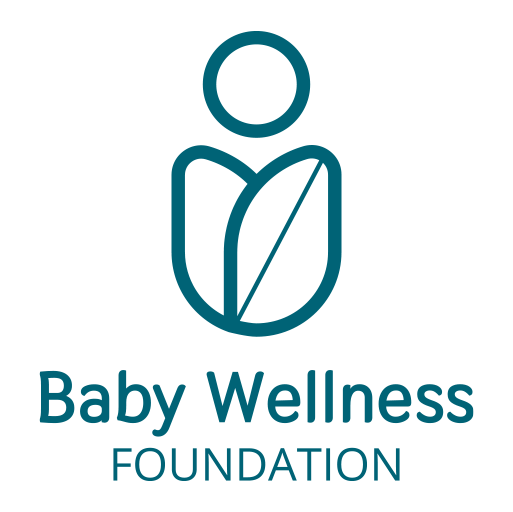Approfondimenti scientifici
Hydration and the Newborn’s Well-Being
Water represents an essential element for life, playing a fundamental role not only in the body of the newborn and infant, but in every single cell of the human body. It is the primary medium through which the transport of nutrients and oxygen occurs, as well as the elimination of waste products, thereby contributing to the maintenance of the body’s metabolic and functional balance.
In newborns, water performs specific functions of particular importance: it regulates cell volume, contributes to thermoregulation—particularly critical in the first months of life—and facilitates digestive processes. Structurally, water also has a mechanical function of protection and lubrication of joints and soft tissues, maintaining skin elasticity and proper hydration of the mucous membranes.
Ensuring proper water balance, especially during the summer months, is essential for the newborn’s overall well-being and for the prevention of conditions related to dehydration, which can arise quickly due to the immaturity of physiological self-regulation mechanisms.

The main functions of water in newborns
In newborns, water performs several vital functions:
- Hydration: Water maintains the body’s water balance, which is fundamental for all physiological functions. In the first months of life, newborns receive the necessary water primarily from breast milk, which is composed of about 87% water.
- Regulation of body temperature: In newborns, water helps regulate body temperature. This is especially important because newborns have an immature thermoregulation system and can overheat or cool down quickly.
- Transport of nutrients and oxygen: Water is the main component of blood, which carries essential nutrients and oxygen to the body’s cells.
- Waste elimination: Water helps eliminate waste products from the body through urine and feces, which is particularly important to prevent the accumulation of toxins.
- Metabolic processes: Water is an essential solvent for many chemical reactions and metabolic processes in the newborn’s body; without adequate water intake, these processes may be compromised.
- Lubrication and tissue protection: Water keeps body tissues, such as joints and mucous membranes, moist and lubricated, which is important for preventing irritation and infections.
- Support of skin and mucous membranes: Water keeps the newborn’s skin and mucous membranes elastic and well hydrated, preventing dryness and irritation. Proper hydration is essential for the newborn’s skin barrier, which is more delicate than that of adults.
- Growth and development: Water is essential for the newborn’s overall growth and development. Every cell in the baby’s body requires water to function properly and to support the rapid growth typical of the first months of life.
Water balance in the first months
Water balance refers to the equilibrium between water intake and loss. In the neonatal stage, this balance is particularly delicate due to the higher percentage of body water and the speed at which it is lost through sweating, breathing, urine, and feces.
During the summer months, attention to hydration must be even greater. Ambient temperatures above 30°C, combined with low humidity, can triple water losses through skin evaporation.
The role of breast milk in hydration
For exclusively breastfed newborns, breast milk is a complete and sufficient source of fluids, even during summer.
- Water composition: it contains about 87% water.
- Adaptability: its composition can adjust in response to climate, becoming more watery during hot periods.
- On-demand breastfeeding: allows the baby to take in the necessary amount of fluids according to their natural rhythm.
- Protective effect: even in extreme heat, it is not necessary to provide extra water to exclusively breastfed infants (source: Italian Society of Pediatrics).

When to introduce water
With the beginning of complementary feeding, around 6 months, it is appropriate to introduce water as a regular part of the diet, both for breastfed and formula-fed babies.
Nutritional recommendations (LARN)
- 6–12 months: about 800 ml of water per day, including water from food and milk.
- In temperate climates: around 400–600 ml of drinking water per day.
- In hot climates: needs may increase significantly, making it necessary to offer water more frequently.
It is recommended to offer still, natural drinking water several times a day, especially during meals. Offering half a glass of water per meal is a good habit.
Starting from weaning, fruit and vegetables significantly contribute to the child’s daily hydration. Water-rich foods support fluid balance and provide valuable micronutrients.
Average water content in foods
- Fruit and vegetables: ~85%
- Milk and fresh dairy products: 50–70%
- Cooked pasta and rice: 60–65%
Water is much more than just a drink: it is an essential element for the proper functioning of the growing body. In the first months of life, hydration through breast milk is sufficient; from 6 months on, water becomes a necessary complement to the diet. Proper water balance is synonymous with health, well-being, and harmonious development. In summer, careful monitoring of the newborn’s hydration is one of the simplest but most essential forms of care we can offer.
